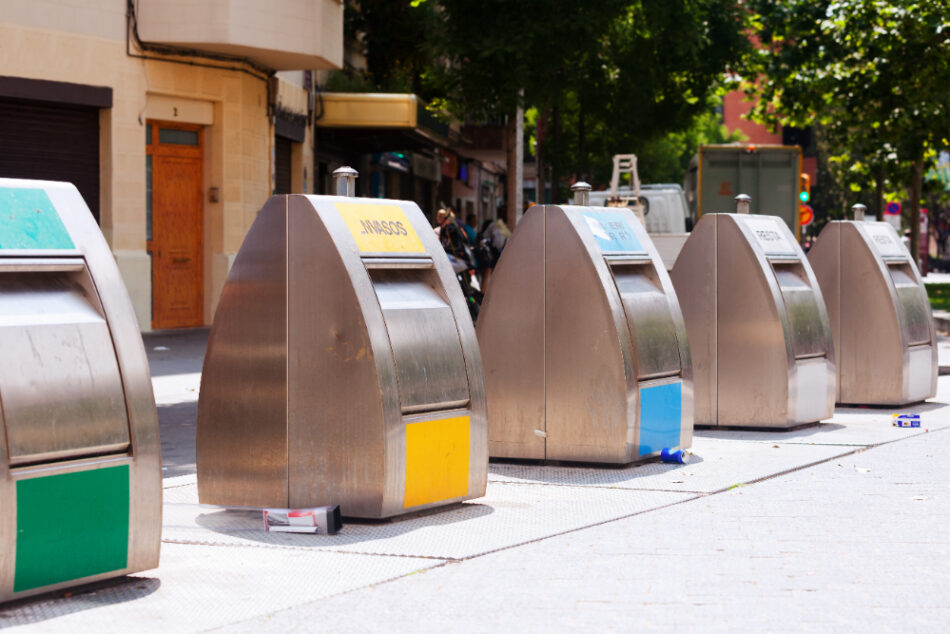In today’s rapidly developing urban environments, waste management remains one of the most pressing challenges. As cities become more populated, the increase in population leads to a significant rise in waste generation. Traditional methods of waste disposal often cause overflowing bins, longer collection times, and inefficient systems that harm the environment. However, the emergence of solar trash compactors is changing the way waste management works, leading to cleaner cities and a healthier planet.
The Need for Efficient Waste Management in Urban Areas
Urban centers are constantly growing, and so are the waste volumes they produce. This creates a host of problems for local authorities, including the inefficiency of waste collection processes, limited landfill space, and the environmental impact of waste disposal. With increasing waste volumes comes the increased need for more frequent collection, which not only strains municipal resources but also leads to air pollution from garbage trucks and overfilled waste bins. Furthermore, littering and overflowing bins make streets unsightly and can attract pests, creating health hazards.
These problems demand a more efficient and sustainable solution, which is where solar trash compactor come in. Solar-powered trash compactors are a game-changer in waste management, offering a variety of advantages that significantly reduce the environmental impact of waste disposal and enhance the efficiency of waste collection systems.
How Solar Trash Compactors Work
Solar trash compactors use a solar-powered system to compact waste, reducing its volume by up to 80%. Solar panels convert sunlight into energy, making these compactors an eco-friendly waste management solution. The mechanism inside the bin compresses the waste, allowing more waste to fit in the same space.
Once the bin reaches its capacity, sensors inside the compactor alert waste management teams that it is time for collection. This system ensures bins get emptied only when necessary, reducing unnecessary trips and minimizing the carbon footprint from waste collection trucks.
Reducing Urban Waste Overflow
One of the biggest challenges in waste management is dealing with overflowing bins, particularly in densely populated urban areas. In cities where space is limited, waste can quickly accumulate in public spaces, causing unsightly street clutter and creating breeding grounds for pests. This is not only visually unappealing but also poses significant public health risks.
Solar trash compactors address this issue by automatically compressing waste, allowing bins to hold much more material without overflowing. The compacting feature reduces trash size, freeing up space for more waste. This means fewer bins need emptying, and trash is less likely to spill over onto the streets. In turn, this reduces visual pollution caused by litter and waste accumulation, helping maintain cleaner urban spaces.
Reducing Pollution and Carbon Footprint
Traditional waste collection systems rely on large trucks that travel throughout cities to pick up trash. These trucks emit harmful greenhouse gases, contributing to air pollution and climate change. In densely populated cities, the constant movement of waste collection trucks leads to traffic congestion and the unnecessary burning of fuel, which further contributes to pollution.
Solar trash compactors, on the other hand, reduce the need for frequent waste collection. Because the compactors can hold more waste and only require emptying when full, there is a reduction in the number of trips needed to collect trash. Fewer trucks on the road mean fewer emissions, less fuel consumption, and a smaller overall carbon footprint. Additionally, the use of solar energy in these compactors further contributes to the reduction in pollution, as it eliminates the need for electricity generated from fossil fuels.
Cost Savings for Municipalities
The upfront cost of installing solar trash compactors may seem high, but over time, they offer substantial cost savings for municipalities. With fewer collection trips required and less manpower needed to empty bins, cities can reduce their operational expenses. Additionally, by cutting down on the number of waste trucks needed, municipalities can save on fuel costs and maintenance expenses.
Moreover, the efficiency of solar trash compactors helps extend the life of landfills by reducing the volume of waste that needs to be disposed of. This can delay the need for expensive landfill expansions or new waste disposal sites. In the long run, these cost savings benefit taxpayers and help municipalities allocate resources more effectively.
Environmental Benefits Beyond Reduced Carbon Emissions
In addition to lowering carbon emissions, solar trash compactors offer other environmental benefits. The solar panels that power these compactors rely on renewable energy from the sun, making them an eco-friendly option for waste management. Unlike conventional waste disposal methods that require electricity from the grid (often powered by fossil fuels), solar-powered compactors reduce the demand for non-renewable energy.
Conclusion
Solar trash compactors offer a powerful and sustainable solution to the growing waste management challenges cities around the world face. By reducing waste volume, minimizing the frequency of waste collection, and lowering the environmental impact of waste disposal, these devices help create cleaner, greener urban environments. With their eco-friendly design, cost savings, and ability to reduce pollution, solar-powered waste management drives the future of urban waste solutions.







